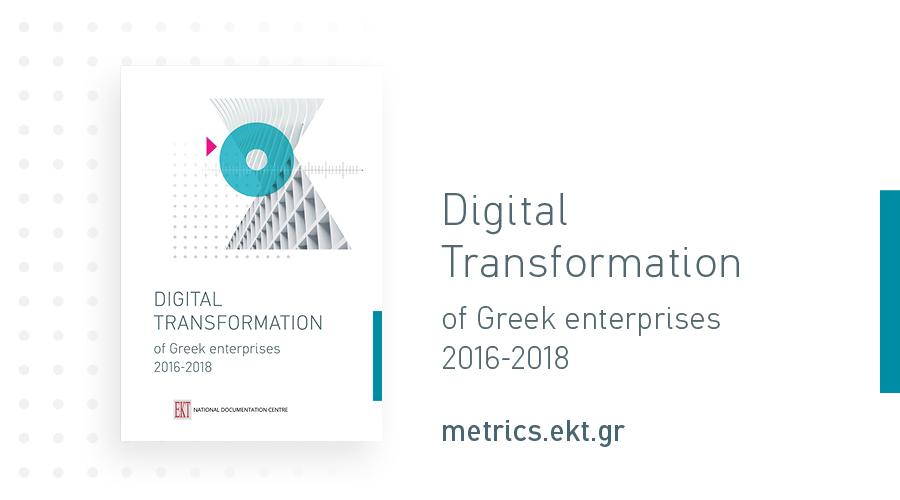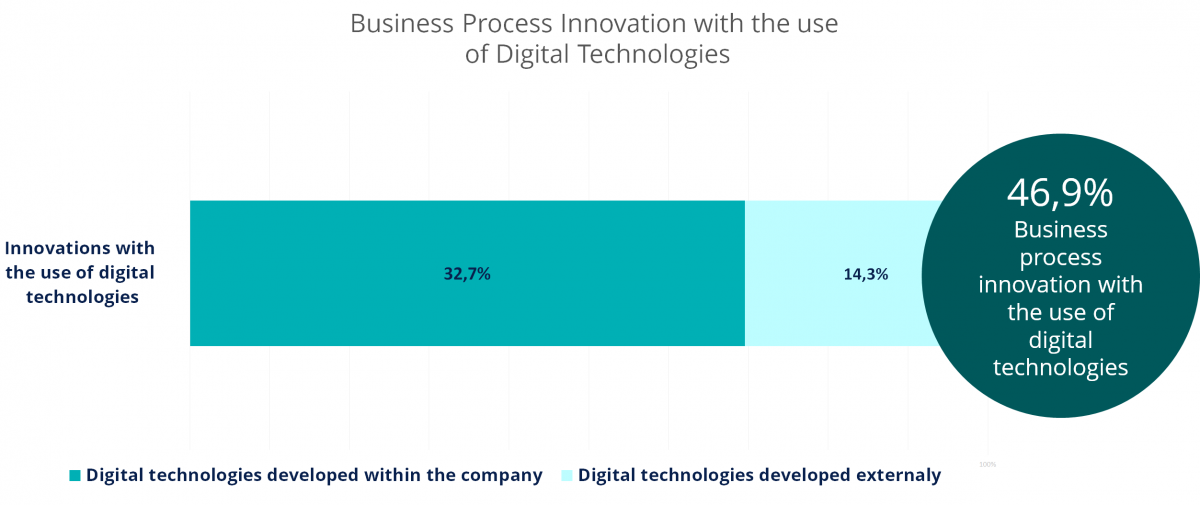
One in three Greek enterprises put Digital Transformation at the centre of strategic planning. One in two businesses innovate by using digital technologies. One in three companies has the internal capacities, infrastructure and staff to develop digital technologies. The adoption of frontier technologies is still limited, but many businesses realise the importance of technologies such as the Internet of Things, Big Data Analytics Technologies and cloud computing, for their future growth. All the above is reflected in the new study "Digital Transformation of Greek enterprises 2016-2018', published by the National Documentation Centre (EKT).
The study, carried out by EKT within the framework of the official statistical survey 'Innovation in Greek Enterprises 2016-2018', included a population of 12,213 enterprises with 10 and more employees in various sectors of economic activity.
As the Director of EKT, Dr Evi Sachini noted, 'This new publication is the first comprehensive record of the progress of the digital transformation of small and medium-sized enterprises. Businesses seem to understand the need for digital transformation and are moving forward in this direction. The results of this shift can be maximised if they are integrated into the country's wider policies towards the knowledge-based economy'.
The survey, available at https://metrics.ekt.gr/en/publications/412, explores the role of Digital Transformation in the strategic planning of enterprises, with a focus on the digital skills of staff and digital technologies that are considered important for future growth. Particular reference is made to the link between Digital Transformation and the Innovation of Greek Enterprises.
By assessing the importance of strategies contributing to their further growth and upgrading, it is clear that 33.5% of the country's enterprises regard Digital Transformation as a very important development strategy. In particular, 4,088 enterprises out of a population of 12,213 enterprises, adopted Digital Transformation as a 'continuous & global growth strategy'. This represents 51.5% for large enterprises (250 and more employees) and 33.1% for SMEs (10-249 employees).

The focus on digital technology for the improvement and development of goods and services is seen as the most important strategy for the digital upgrading of enterprises, with a rate of 34.5%. Having a strategy for reorganising the business processes with digital technologies follows with 30.7%.

Strategy focusing on Digital Skills is seen by 27% of the country's enterprises as very important in terms of strengthening the digital skills of their staff. The difference between large and SMEs enterprises in the evaluation of this strategy is significant. Larger enterprises rated it at 38.4%, which is 11.6 percentage points higher than small and medium-sized enterprises (26.8%).

Looking at the innovation dimension, 46.9% of the country's enterprises used digital technologies to develop innovation in operational processes, which highlights the significant penetration and contribution of digital technologies in all operational functions. In addition, it is of particular significance that 32.7% of the country's enterprises have developed digital technologies, using exclusively internal resources or in co-operation with other enterprises with the participation of personnel specialised in digital technologies. 14.3% of enterprises went ahead with the procurement of digital technologies developed by others.

On the importance of innovative digital technologies for the future growth of enterprises, the technologies related to the Internet of Things (IoT) are considered to be very important, with ratings of 20.4% for innovative enterprises, 9.2% for non-innovative enterprises and 15.9% for total enterprises. The second most important technology is Big Data Analytics, with 17.8%, 7.7% and 13.8% respectively for innovative enterprises, non-innovative enterprises and total enterprises. Cloud Computing, Automation and Robotics, Blockchain, Artificial Intelligence and 3D Printing follow with smaller shares.















